15 People Who Were Blessed by an Instant Twist of Fate

A team of intrepid scientists have devised an audacious plan to unravel the mysteries of the universe. Their secret weapon? Computation — the very heartbeat of living systems! But what’s that, and how will “computational zones” help us to find extraterrestrial life? Let’s find out.
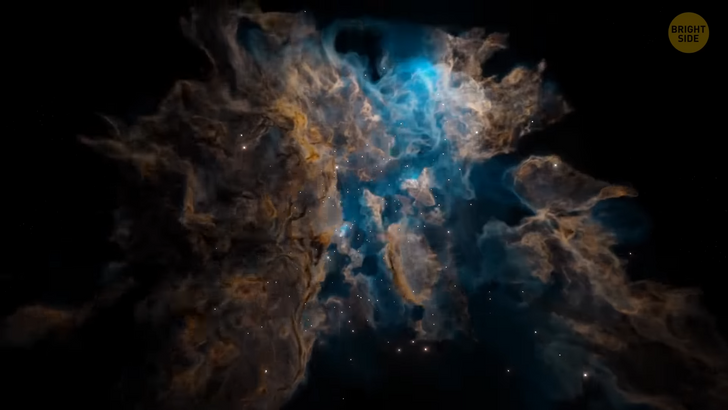
In our universe, there are special places called “habitable zones”. They hold the key to life as we know it. You see, planets are a bit like picky eaters — they have specific preferences for their conditions. Just as we humans need things to survive, planets need their environments to be just right for life to thrive.
So, what’s the secret recipe for a habitable zone, you ask? It’s all about finding that sweet spot where liquid water can exist. Water, as we know, is the magical elixir of life. Planets love to have it flowing or sloshing around on their surfaces.
So, we need to find the perfect balance. If a planet is too close to its star, things get toasty, and water evaporates into a sizzling mist. On the flip side, if a planet is too far away, it becomes an icy wasteland, freezing water solid and turning potential life into popsicles.
But within that perfect middle zone, also called “the Goldilocks zone”, temperatures are just right. That means, planets have the perfect conditions for life to potentially take root.
For a long time, scientists have been looking for planets in these zones. And as of January 2023, we have found a total of 63 potentially habitable exoplanets! However, a recent study has changed our view of where we should look for life.
Gone are the days of restricting our search to mere “habitable zones.” Oh no, we’re thinking big! Get ready for the “computational zones.” These enchanting realms could house life forms we’ve never even dreamed of encountering before! But what exactly are these computational zones? Well, let’s see.
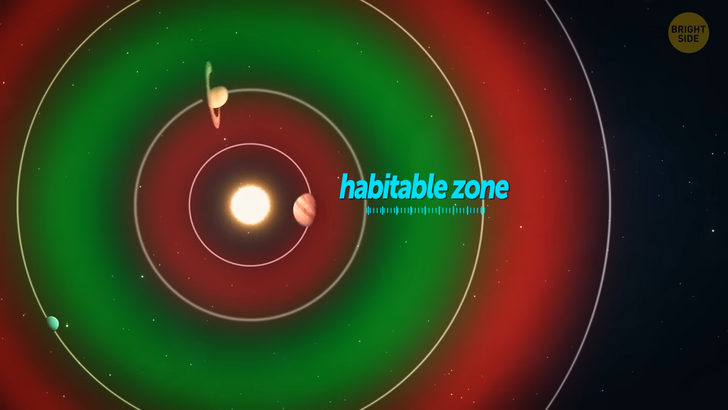
When scientists search for life in the universe, they usually look for things similar to what we have here on Earth. They imagine creatures living on a planet’s surface, at just the right distance from their star, and using water for important chemical reactions. But what if life can be much more diverse and fascinating than that?
Imagine life using different liquids instead of water. Picture life hiding deep underground in icy moons. It’s even possible that life doesn’t need a star at all! And there might be biological systems that are different from our idea of life in general, but still alive in their own unique way.
That’s why two clever researchers have come up with a new idea. They want to change how we think about the places where life could exist. Instead of focusing on habitable zones, they suggest looking for “computational zones.”
Think of these computational zones as special kitchens where the secret recipe for life is being prepared. To make this recipe work, we need three key things.

First, we need a variety of special ingredients, like different chemicals. Just like a chef needs various spices and flavors to create a delicious dish, life needs different chemicals for its calculations.
Second, we need a source of energy, like sunlight or heat from hydrothermal vents. This energy powers the cooking process, just like heat powers a chef’s stove.
Lastly, we need a dedicated space, like a kitchen counter, where all the calculations can happen. It’s the place where the ingredients come together, and amazing things start to occur. In our case, it was our Solar system, and our planet Earth.
Basically, computational zones should have three things: some chemicals, source of energy, and space. This makes a pretty wide sample, isn’t it? By focusing on computational zones, the researchers believe we have a better chance of finding signs of life. These zones could lead us to amazing discoveries and show us that life in the universe is much more creative and diverse than we ever imagined.
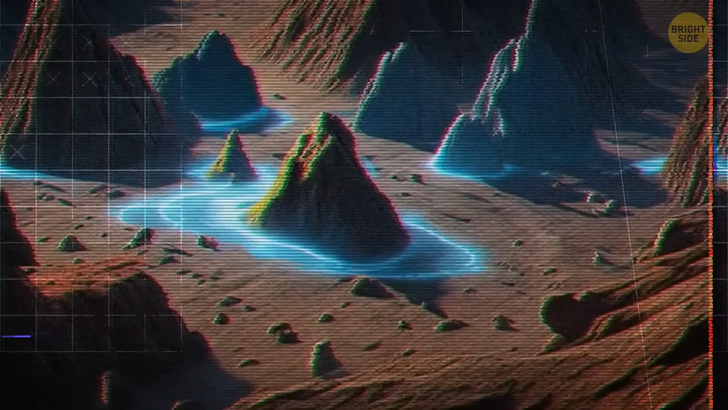
And here’s the real mind-boggler: this idea also leads us to think about technology. Yes, AI and stuff! Just as we humans create and use technology, could life itself create its own technological marvels? “Life” could be biological, digital, or even something completely different! Computational zones give us a fresh way of thinking outside the box and get creative. Now here’s another twist in all this research. Turns out that life might be much closer than we think! As if, in our own solar system.
It turns out that the insides of icy moons, like Europa or Enceladus, answer to all these conditions. They’re just as fascinating as the surface of rocky planets. It’s like realizing that hidden treasure lies right beneath our feet!
Europa is Jupiter’s icy moon which is as old as our Earth. It looks like a half-sphere with a bright icy appearance: an off-white color with a hint of blue. Mysterious dark lines stretch across the moon, forming patterns. It lacks towering mountains or deep basins, but instead showcases dark ridges, grooves, and long streaks. As you move toward the bottom of the image, Europa fades into darkness, leaving us curious about what lies beyond. But the most important thing about Europa is that it’s a fascinating candidate for life.
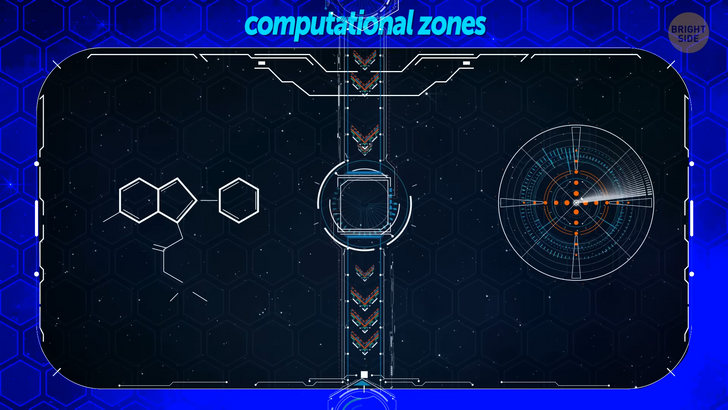
First of all, this moon has liquid water in abundance! Scientists believe that there might be an entire salty ocean beneath its icy surface. There might be twice as much water as all the oceans on Earth combined! But life needs more than just water to exist. It requires certain chemical elements, like carbon, hydrogen, oxygen and so on. They’re like the building blocks of life. These elements are found throughout the universe and make up a whopping 98% of living matter on Earth.
And Europa is believed to have a lot of all these elements, too. Perhaps they were brought there in the distant past after a collision with asteroids and comets. Although it’s pretty cool that we found organic molecules on Europa, it doesn’t automatically mean they are linked to life. These molecules can be created in non-living processes as well. But they still give us some very important clues.
And finally, energy. It’s like fuel for life. Just like we need food to keep going, all living things need energy to survive. On Earth, plants get their energy from the Sun through a cool process called photosynthesis. Plants turn sunlight into food, and when animals eat those plants, they get energy too. But the kind of life that might live on Europa can’t rely on sunlight. Europa is covered in a thick layer of ice, so there’s no sunshine reaching its surface. Instead, life on Europa would have to find another way to get energy. And that way is through chemical reactions.
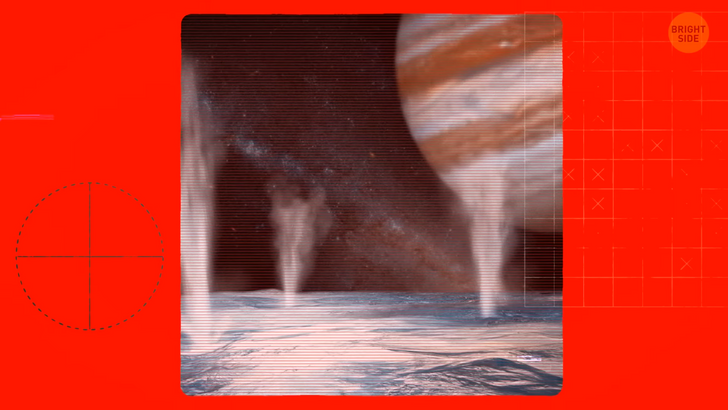
Europa’s surface gets showered by radiation from Jupiter... which is not so great for living things up there, to say the least. However, this radiation can actually be helpful! It helps to create oxygen and hydrogen in Europa’s atmosphere. But that’s not all. As Europa orbits around Jupiter, it gets flexed and squeezed by the planet’s gravity. This flexing generates heat, just like how bending a paperclip can make it warm. The heat from this process can provide energy for life too.
So, as you can see, Europa’s potential life forms have to get creative. But this little moon still has a very high chance of supporting life. It’s a fascinating and mysterious world out there!
And Saturn’s moon Enceladus is also an exciting place where life could thrive. But detecting this life is no easy task. The moon is covered by a thick ice shell with a super deep ocean beneath. Even here on Earth, that would be a huge challenge, let alone on a moon halfway across the Solar System.
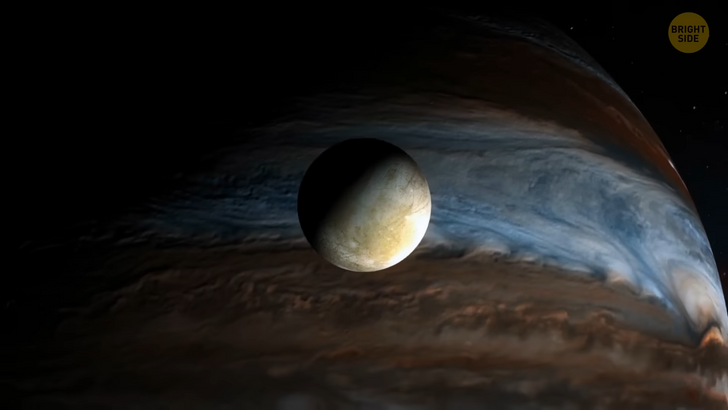
Enceladus is nothing like Earth, so don’t expect to find cows and butterflies there. But it would have its own unique ecosystem. Some organisms that rely on chemical reactions for energy.
Although life on Enceladus, if it exists, might be extremely scarce. But regardless, we should keep exploring it. Any findings would be helpful for our future missions. All these new discoveries open new possibilities and fuel our curiosity about life beyond our planet. Who knows what exciting discoveries await us in the vast universe? Let’s keep exploring and find out!











